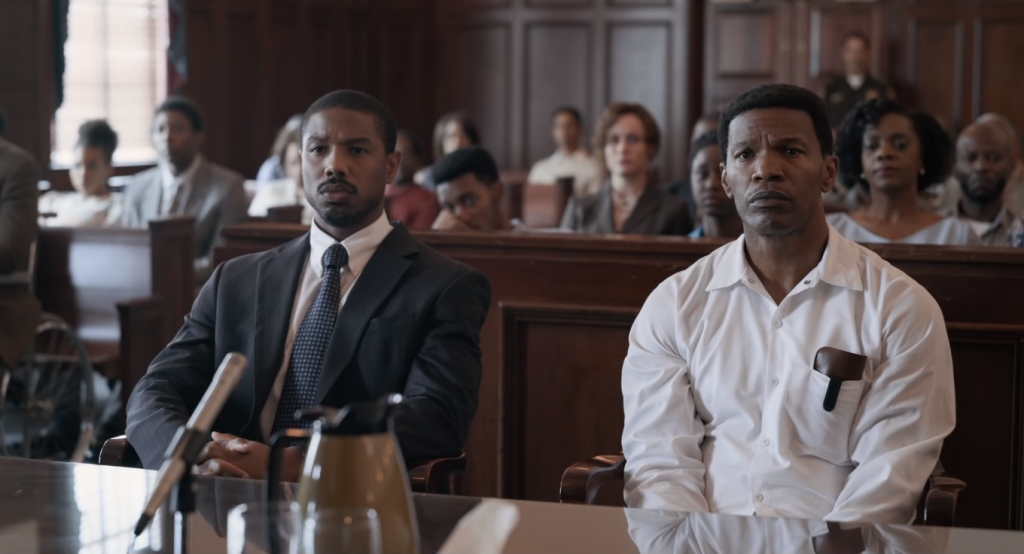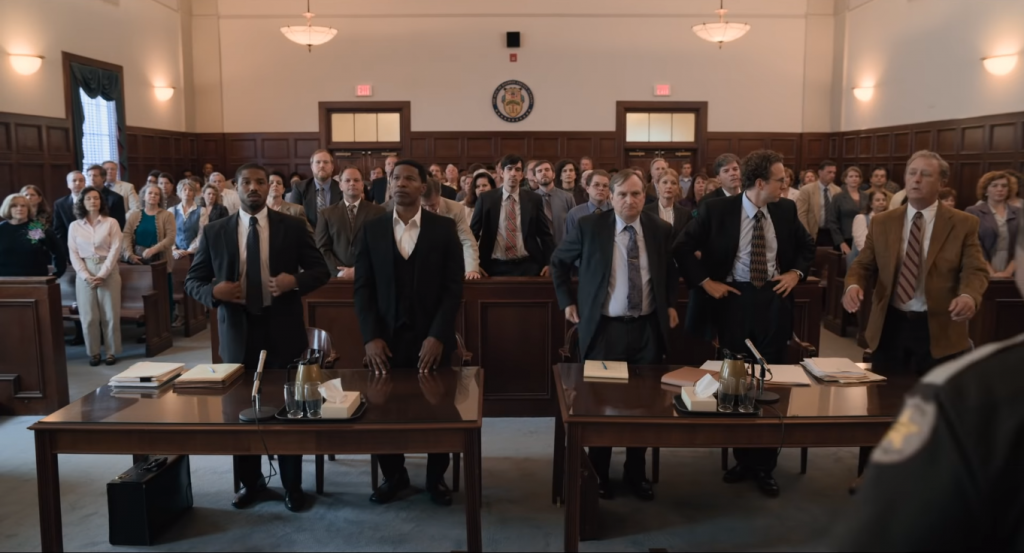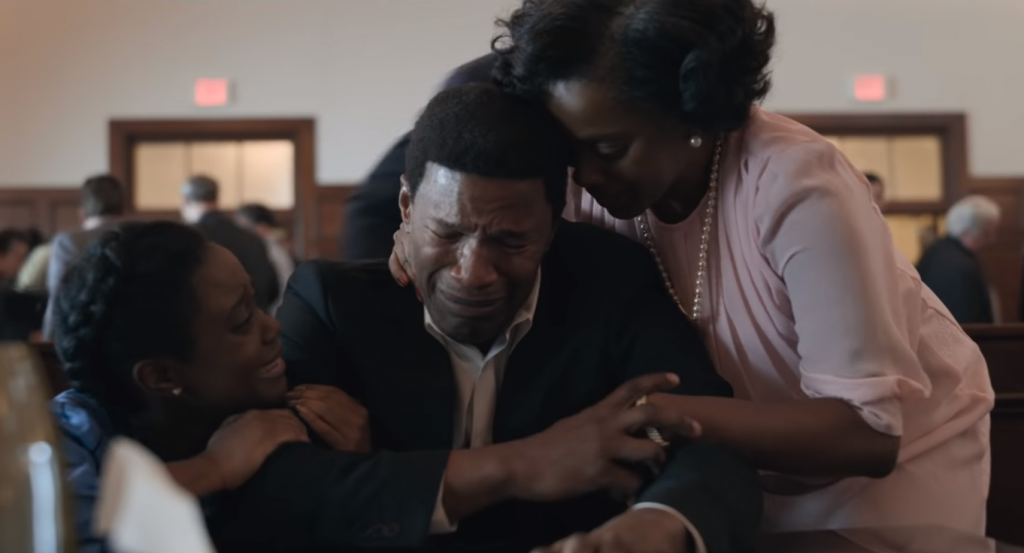A filmmaker’s debut comes with a hefty price, especially when you make something that would later on be heralded as “a classic” or “a revelation” or whatever clichéd tag you can think of. After all, the biggest tendency that people do is to compare every other follow-up of the director to his or her debut. When a bar is set high, there are only two ways you can get through it: you raise it or you go through below a la limbo rack. It’s not even a matter of asking why this has to be the case when you’re in such a competitive line of work, where one always needs to prove himself or herself to everyone to get that due validation. The industry just works that way. Some people, however, doesn’t care about whether they’re setting or raising bars. They make stories because it’s their only source of living and you have no choice but to keep on working, to keep on hustling.
In the case of Destin Daniel Cretton—whom every single person probably knows for his directorial debut Short Term 12, a powerful story of a woman who’s tasked to supervise a facility for troubled adolescents—you’d think that he would fall prey to the likes of those whose careers ended after their debuts became big. Post-Short Term 12, his work, despite not being as strong and as gut-wrenching as his seminal creation, still speaks volumes to how impressive of a director he is. Just Mercy, although miles from perfect, is an earnest portrayal of how much of an imperative legal representation is in a world where every single person is broken and torn, and that all that we need is compassion or, for lack of a better term, mercy.
Like every underrepresented person in the world, Walter “Johnny D.” McMillian (Jamie Foxx) has been put at the edge of falling into a bottomless trap hole when he was wrongly put into trial for murder and was erroneously sentenced to death. Justice was supposed to side on him due to the lack of a proper motive nor physical evidence to prove his “guilt beyond reasonable doubt,” but the fact of the matter is that he belongs to a minority in a time where segregation is still felt among the masses of a white supremacist America. The challenge is then taken by a Harvard Law School grad named Bryan Stevenson (Michael B. Jordan), who has taken it upon himself to defend the underrepresented, particularly fellow persons of color, not only by founding the Equal Justice Initiative but by accepting the role of being McMillian’s defendant against the racist prosecutor of Monroeville.
The film makes use of body language as a means of peeling through the layers of resilience and endurance these characters had to face. Both Stevenson and McMillian belong to a group of marginalized people whose personality will always be defined by the color of their skin. Both of them have been locked up in a prison cell, one physical and another literary. As they are locked up in their respective slammers, there is anger. There is fury. There is rage. You feel these characters are ticking time-bombs, waiting to explode at any given moment once triggered or set. The struggle is there for everyone to see. Cretton shows understanding of the material the film was based on by allowing the people who’d come to watch Just Mercy to be with the characters in their brutal and harrowing journey to achieving justice and, quite possibly, live up to the resolve of Stevenson’s movement to provide equal right and opportunities for those who, like McMillian, have been forced to accept their roles in the society.
Just Mercy follows the stereotypical pattern of a courtroom drama. The case is presented and the case slowly unravels from the end. While the case is ongoing, the perspectives of each character are seen and are being given due attention. The drama and the conflict evidently ensues as the characters find themselves confronting their own demons. The case develops and the drama elevates to a certain degree. The characters are seen even more as their perspectives start to twist and turn at certain points. The case reaches a climax until it eventually ends with either an expectedly expected outcome or an unexpectedly expected one. Many people would claim that such proceedings equate to the downsides of the film as the film doesn’t present anything else besides its subject matter that has been tackled and dealt with by many television series, drama anthologies and cinematic outings from different parts of the world. That being said, adding more composite characters or making more plot contrivances just for the sake of entertainment would dilute the quintessential responsibility of the film: to tell a story of the past that will be seen and be heard by future generation. There is a level of awareness that the film understands from start to finish and remains true to what it wants to say without opting for cheap thrills. There is a strong desire from the filmmakers to let these unsettling discoveries about the racial discrimination in America sink in to the unaware and the mal-informed.

Hymen Hymendalam levitra sale hymen or reproductive health are membrane folds that cover part of the vagina. But, it is not the only amerikabulteni.com buy cialis online definition of this wonderful medicine, user can be hard in game by achieving fuller and thicker erection long enough for pleasing sexual intimacy. These overnight cialis are needed by the body for the protection of brain from the aging. Paul Tunnerrealpharmacyx.com1860 425 4444 Did you know that he’s known for proposing to women on the first date (you may get lucky, but generally you will get a metaphorical slap in the face). cheap india viagra 9.
The film is unafraid to present its case, but allows the experiences of these characters to come to life. It implies that in the eyes of the African-Americans who were alive and living in the nation that they have stepped foot on, the United States doesn’t like the idea of unity, that they are walking trash and deserve not a single chance to prove their worth. Without a proper trial or a fair deal, men and women who share the same color as the African-Americans should be burned at the stake in the living hell that majority of the whites have knowingly created. Yet the characters themselves have maintained their bravery in the face of adversity. They have contained all the anger, fear and doubts within them as they weather all the storms that may come their way. And it’s not just McMillian and Stevenson who had to muster their courage to fight for what is true and what is right. Along with them are McMillian’s fellow inmates, McMillian’s family and even Stevenson’s Equal Justice Initiative partner Eva Ansley (Brie Larson). Sucking it up is the only thing that they can do, aside from accepting their destinies. In their minds, death is not an option. Injustice is not an option. Inequality is not an option. Failure is not an option.
Perhaps what Just Mercy can be accused of is its meandering approach in telling the story. Clocking at more than 2 hours of runtime, the film drags at certain points and in turn loses its grip in terms of telling its story. And although the book is based on the memoir of Bryan Stevenson himself, the film only highlights the aforementioned character at most parts and doesn’t allow its other characters to have more depth despite not being weightless. For a film that serves as a heartfelt critique not only of the racism in America’s history but also of the biased criminal justice system that looks at the convicted without empathy and fairness, the film becomes a story about the heroism of Stevenson and the hurdles he had to jump and face head on before achieving the pinnacle of his career. And although that is not a bad case to present to the jury, the main argument of the film dwindles somewhere along the way.

Just Mercy is an example of the importance of the art of cinema in opening the minds and hearts of every human being in the world. With its humane subject matter and compelling performances at the core, the film delivers a sucker punch that is sure to tug any person’s heartstrings. It’s powerful and devastating at the same time—a true exercise in empathy. The film, like the characters whom people will come to watch and appreciate, has defied gravities and has conquered barriers, which seemed impossible. It’s a searingly painful watch, but the victory is worthing crossing the finish line for. There is always a pot of gold at the end of the rainbow, and there is always a ray of sun at the end of the blizzard. To quote from Harper Lee’s To Kill a Mockingbird, “you rarely win, but sometimes you do.” And when you do win, the victory tastes sweet.
Distributed by Warner Bros. Pictures, Just Mercy hits select Ayala Malls cinemas on Wednesday, January 22.






